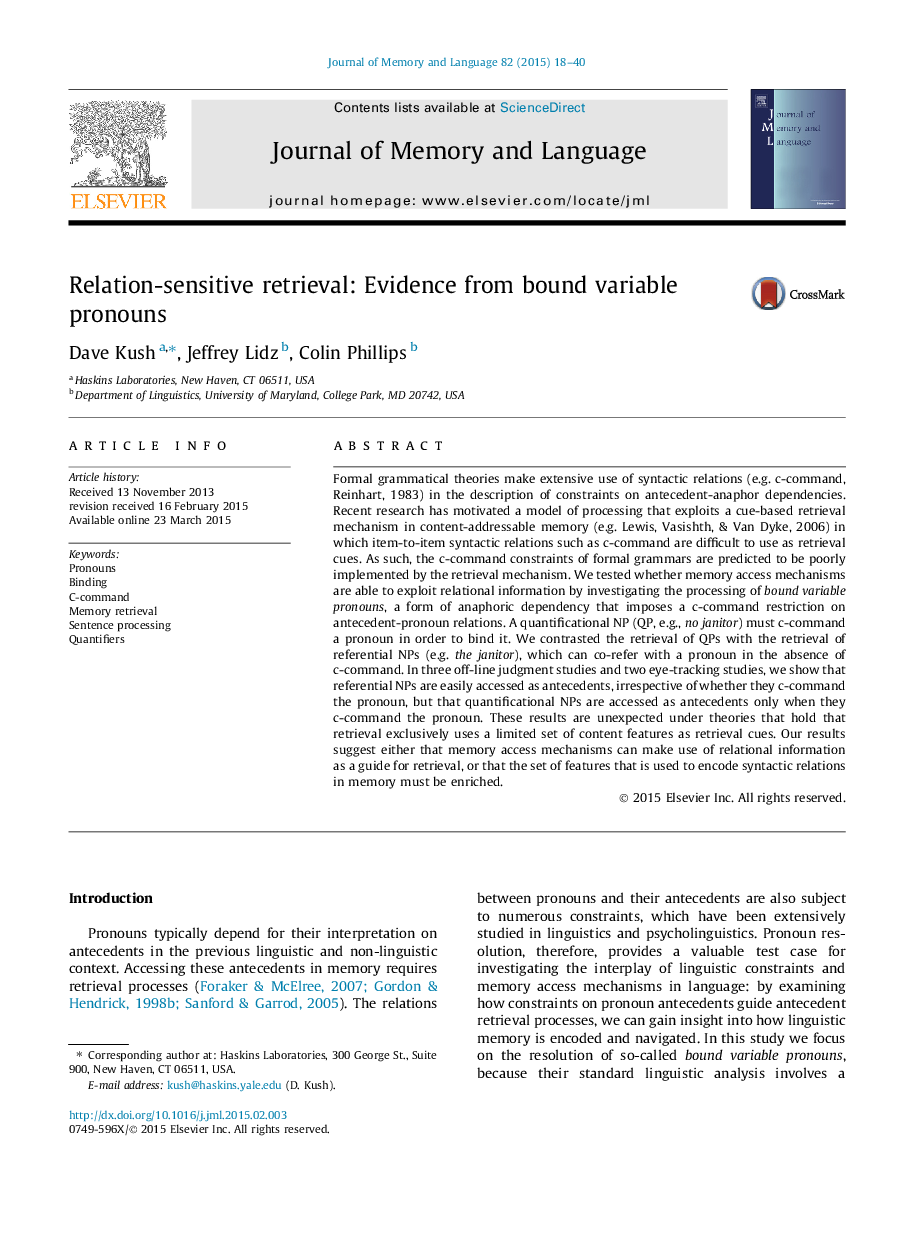| Article ID | Journal | Published Year | Pages | File Type |
|---|---|---|---|---|
| 7297057 | Journal of Memory and Language | 2015 | 23 Pages |
Abstract
Formal grammatical theories make extensive use of syntactic relations (e.g. c-command, Reinhart, 1983) in the description of constraints on antecedent-anaphor dependencies. Recent research has motivated a model of processing that exploits a cue-based retrieval mechanism in content-addressable memory (e.g. Lewis, Vasishth, & Van Dyke, 2006) in which item-to-item syntactic relations such as c-command are difficult to use as retrieval cues. As such, the c-command constraints of formal grammars are predicted to be poorly implemented by the retrieval mechanism. We tested whether memory access mechanisms are able to exploit relational information by investigating the processing of bound variable pronouns, a form of anaphoric dependency that imposes a c-command restriction on antecedent-pronoun relations. A quantificational NP (QP, e.g., no janitor) must c-command a pronoun in order to bind it. We contrasted the retrieval of QPs with the retrieval of referential NPs (e.g. the janitor), which can co-refer with a pronoun in the absence of c-command. In three off-line judgment studies and two eye-tracking studies, we show that referential NPs are easily accessed as antecedents, irrespective of whether they c-command the pronoun, but that quantificational NPs are accessed as antecedents only when they c-command the pronoun. These results are unexpected under theories that hold that retrieval exclusively uses a limited set of content features as retrieval cues. Our results suggest either that memory access mechanisms can make use of relational information as a guide for retrieval, or that the set of features that is used to encode syntactic relations in memory must be enriched.
Related Topics
Life Sciences
Neuroscience
Cognitive Neuroscience
Authors
Dave Kush, Jeffrey Lidz, Colin Phillips,
